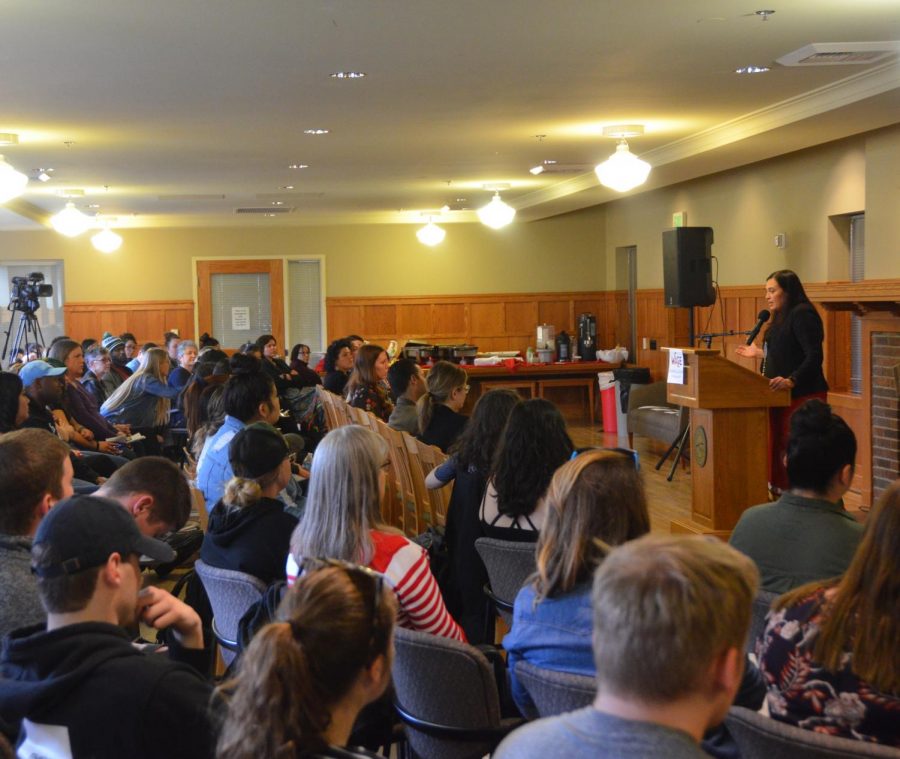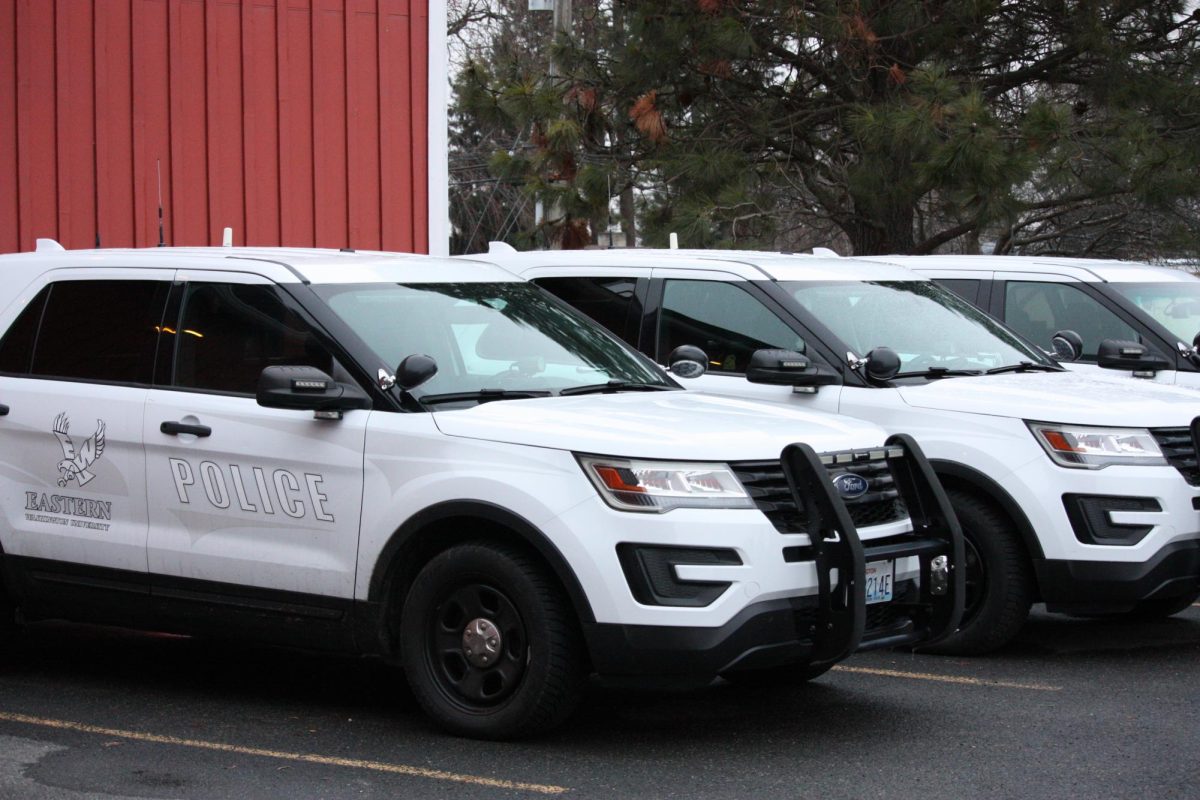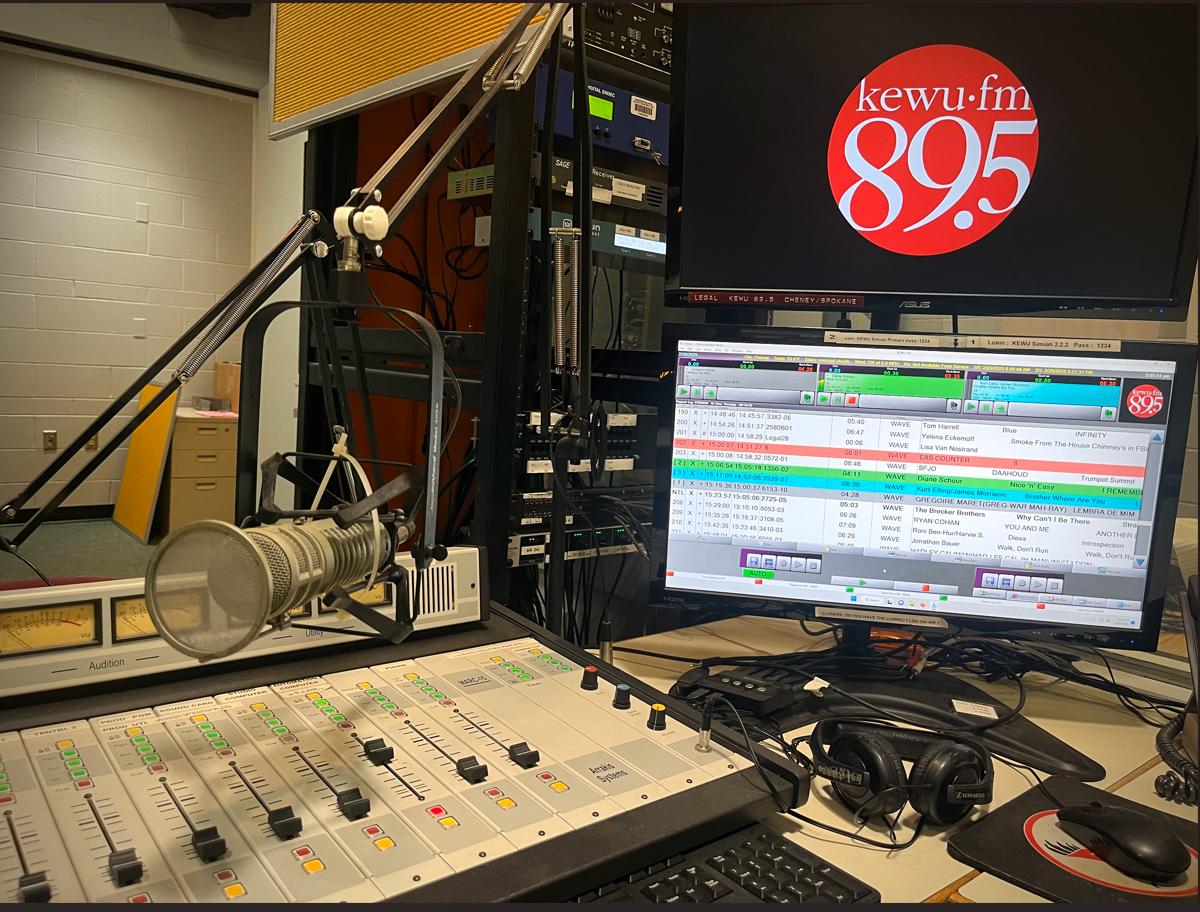Deborah Parker Asks EWU: “What Are You Willing to Protect?”
Deborah Parker gives a speech to EWU students on April 16. Parker, who was the keynote speaker for Sexual Assault Action Week, is a social activist and member of the Tulalip Tribes of Washington.
April 24, 2019
Leah Nemeth is a senior at EWU. Guest columns do not necessarily reflect the views and opinions of The Easterner, its staff members or Eastern Washington University.
April is recognized as Sexual Assault Action Month, which departments such as EWU Health, Wellness and Prevention Services take on to lead the campus in a week’s worth of events.
These events have historically featured guest speakers, education through creative arts across campus and discussions on unpacking what it means to support and understand those who have survived sexual violence.
EWU had the honor of welcoming Deborah Parker, a nationally recognized social activist and scholar who has dedicated her life to causes surrounding indigenous nations’ rights, violence against men, women and children, and sexual assault awareness. She has been instrumental in the passing of legislation in support of missing and murdered indigenous women, environmental justice, and social justice.
Parker’s keynote speech and workshop were nothing short of captivating. The keynote opened with her taking the time to look at the faces in the room and providing a warm welcome, acknowledging the land of the Spokane Tribe that everyone in the room and larger EWU community stood on.
This led to her story on how her upbringing, inspiring her children to go beyond limitations, and tribulations through her life led her to the realization that she had to make her mark on the world. Parker shared the importance of honoring your ancestors and the spaces you encompass, the vitality behind taking care of yourself and your soul, and being able to teach when institutions fail to.
The workshop activity after the keynote was when Parker created an atmosphere where students thought deeply about what current issues they would fight for. After getting into small groups with individuals of similar passions, each group presented on the three issues they felt were pertinent to their causes. This not only created a supportive environment for those who might not have recognized the voice they had before, but it also challenged others to think about what Parker had asked us: “what are you willing to protect?”
Parker’s visit to EWU’s campus not only empowered students, but it opened their eyes to the power they had inside already. She created a space for individuals to unpack within themselves how they can become agents of change.
Parker provides us with the utmost importance of taking action year-round, and highlighting that although sexual violence is typically a conversation focusing on women, it affects everyone of all gender identities, ages, and cultural backgrounds.
The Women’s and Gender Studies program and the Women’s and Gender Education Center collaborated with Health, Wellness and Prevention Services and American Indian Studies to make this event happen.
By Parker coming to campus, she generated the awakening of the next generation of activists and leaders by reminding us that it takes just one voice to start a movement.







